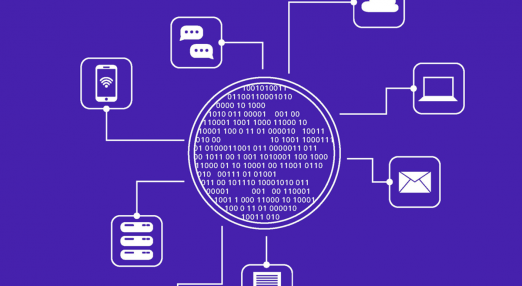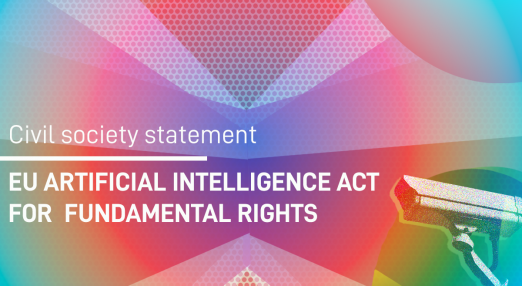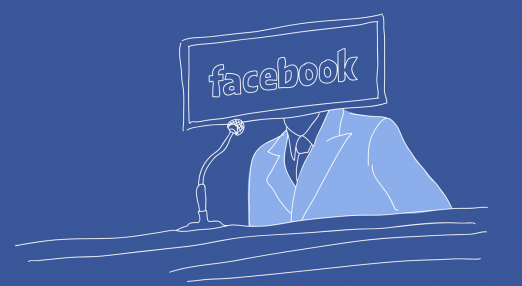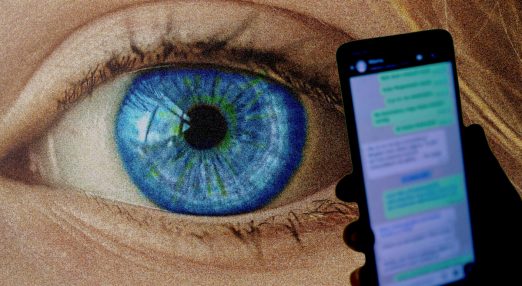Privacy and data protection
Privacy and data protection are essential for us to live, connect, work, create, organise and more. Governments and companies have long used mass surveillance for control trying to legitimise snooping for health, security or other reasons. The near-total digitisation of our lives has made it easier to control, profile and profit from our attention, data, bodies and behaviours in ways that are very difficult for us to understand and challenge. European data protection standards such as the GDPR are a good step forward but we need more to effectively ensure enforcement and protection against unlawful surveillance practices.
Filter resources
-

Algorithmic persecution based on massive privacy violations used to justify human rights abuses, says new report
More than 13,000 Turkish military personnel have been dismissed since July 2016 on the basis of an algorithm used by the authorities to assess the alleged “terrorist” credentials or connections of military officers and their relatives in violation of multiple human rights, says a new report published today by Statewatch.
Read more
-

PlatformPower.eu
Imagine we live in a world where online platforms enable you to change society, are following your choices for online experience and are accountable to society about how their negative effect on society should be tackled.
Read more
-

Civil society calls on the EU to put fundamental rights first in the AI Act
Today, 30 November 2021, European Digital Rights (EDRi) and 119 civil society organisations launched a collective statement to call for an Artificial Intelligence Act (AIA) which foregrounds fundamental rights.
Read more
-

New RESOURCE PAGE helps supporters BAN biometric mass surveillance
The Reclaim Your Face collective has put together a brand new Resource Page, helping all activists spread the word and take action easily, online, offline – at all times, wherever they are.
Read more
-

What you need to know about the Facebook Papers
Facebook is now undergoing what may be the tech giant’s biggest crisis in its 17-year history. In October, The Washington Post reported that a second Facebook whistleblower came forward to the U.S. Securities and Exchange Commission, alleging that the company prioritises growth over combating hate speech, disinformation, and other threats to the public. The whistleblower’s testimony follows that of former Facebook employee Frances Haugen, whose legal counsel released what’s known as the Facebook Papers — a 10,000-page collection of internal reports, memos, and chat logs leaked to more than a dozen major news outlets.
Read more
-

Tinkering with keys weakens encryption
Politicians sometimes claim to have the solution to "the problem of encryption". They think encryption is important, but they also want the police to be able to read along. Therefore they propose to "just" add an extra key and "leave the encryption untouched". But is it?
Read more
-

Noyb files another complaint against Amazon Europe – black box algorithm discriminates customers
The e-commerce giant offers customers the possibility to pay for products later via "Monthly Invoicing". A customer was automatically rejected from using this payment method without Amazon giving any reasons why. When Amazon’s customer service could not provide any further information, the customer submitted an access request under Article 15 GDPR in order to find out why he was rejected – but the company still refused to provide any information.
Read more
-

EDRi-gram, 17 November 2021
Check out our joint call to the Portuguese government to oppose a proposed law that tries to sneak in biometric mass surveillance. In this edition, we also explain how Facebook's latest announcement about deleting their facial recognition database demonstrates that voluntary self-regulation from tech giants is superficial and cannot replace actual legislation against these practices. And discuss the shortcomings of Facebook whistleblower's testimony.
Read more
-

Why chat control is so dangerous
Fighting the dissemination of child sexual abuse material, the EU Commission is considering dangerous measures: the automated search of content on mobile phones and computers. See answers to the key questions regarding „chat control“ in Netzpolitik's overview.
Read more
-

Do no harm? How the case of Afghanistan sheds light on the dark practice of biometric intervention
In August 2021, as US military forces exited Afghanistan, the Taliban seized facial recognition systems, highlighting just how a failure to protect people’s privacy can tangibly threaten their physical safety and human rights. Far from being good tools which fell into the wrong hands, the very existence of these systems is part of broader structures of data extraction and exploitation spanning continents and centuries, with a history wrapped up in imperialism, colonialism and control.
Read more
-

Platform Regulation: Key takeways from Haugen’s hearing
On 8 November 2021, Frances Haugen, the Facebook whistleblower, participated in a hearing of the European Parliament’s Internal Market and Consumer Protection Committee (IMCO). While her testimony brought extremely important insights into Facebook’s opaque operations, it also showed that Haugen’s thinking of what the digital world in Europe should look like is influenced by her expertise in data science rather than public policy, as well as by her professional experience working with Silicon Valley’s centralised mega-platforms.
Read more
-

AI Regulation: The EU should not give in to the surveillance industry
Although it claims to protect our liberties, the recent European Commission’s legislative proposal on artificial intelligence (AI) promotes the accelerated development of all aspects of AI, in particular for security purposes.
Read more
